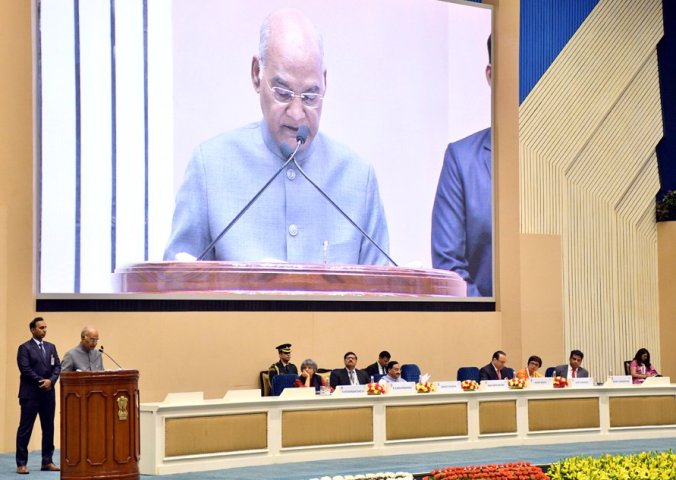Higher education has power to bring about change, mobility: President Kovind
“It (NEP) will lay out the path for transforming Indian education landscape suited to 21st century needs,” the President said.

- Country:
- India
President of India Mr. Ram Nath Kovind today said ‘ideation, innovation and incubation’ should be given primacy in our curriculum as the country recasts its higher education system to meet the needs of the 21st century.
Speaking at the global conference and exhibition ‘15th Higher Education Summit 2019’ on the theme ‘Creative Economy, Nation Building: Higher Education as the catalyst’, organised by FICCI, Mr. Kovind said that higher education has the power to bring about intragenerational change and mobility.
“The world of tomorrow will be driven by knowledge, machine intelligence, and digital pathways. To prepare ourselves for this transformation and to leverage its limitless opportunities, we have to recast our higher education with new courses and deeper research orientation. Ideation, innovation, and incubation should be given primacy in our curriculum,” he said on the inaugural day of the three-day summit.
Mr. Kovind said that the government has begun nationwide consultations on the New Education Policy (NEP) to improve the standards of the more than 990 universities in India, which is one of the largest higher education ecosystems in the world, to convert them into ‘global knowledge hubs’.
“It (NEP) will lay out the path for transforming Indian education landscape suited to 21st century needs,” the President said.
India has the third-largest scientific human resource in the world and if the country sets up a robust higher education system, it has the potential to become the R&D capital of the world, he stated.
“Along with science, liberal arts and humanities must get equal attention,” the President noted.
Mr. Ramesh Pokhriyal ‘Nishank’, Minister for Human Resource Development, Government of India, said, “The government has received over two lakh suggestions on the National Education Policy, including important suggestions from FICCI. We have tried to incorporate suggestions from diverse sources.”
The government is committed to improving the ranking of India’s education institutions, Mr. Pokhriyal added.
Mr. Sandip Somany, President, FICCI, said, “In the era of the knowledge economy, human capital will have the greatest impact on socio-economic growth for decades to come. Hence, to become a $5 trillion economy by 2025, India must transform its higher education institutions and universities to meet the 21st century’s needs.”
Dr. Vidya Yeravdekar, Chair, FICCI Higher Education Committee, and Pro-Chancellor, Symbiosis International University, said, “Today, nations and economies are growing by channelizing the creativity and innovation in their higher education institutions.”
The three-day summit and exhibition will witness the participation of over 1500 delegates, 350 foreign delegates from 76 countries with 4500 planned B2B meetings.
ALSO READ
Empowering Institutions: Devendra Fadnavis on Education Autonomy and India's AI Future
Innovation's Holy Grail: Uniting Science and Education for Social Change
Harnessing AI: Revolutionizing Education Despite Ethical Concerns
VijAIpatha: Pioneering AI Education in Indian Government Schools
Meghalaya Embraces Local Culture with New Education Policy










